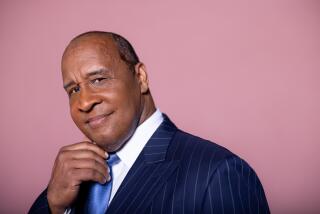Indianapolis Pushes Privatization Trend Several Steps Further
- Share via
INDIANAPOLIS — In San Francisco, it’s renaming Candlestick to 3Com Park. In the District of Columbia, Wilkinsburg, Pa., and elsewhere, they’re hiring companies to run the schools.
But when it comes to privatization, nobody tops Indianapolis. Golf courses, waste-water treatment, trash pickup, city pools and other services have all either been privatized or opened to competitive bidding.
The result: a city budget tumbling by $26 million in four years, with expected savings of $132 million over the next decade.
To the delight of City Hall, it also means a surge of interest in the program devised by Mayor Stephen Goldsmith, a Republican with a near lock on reelection this year and a likely candidate for Indiana governor in 1996.
“Indianapolis has been one of the real leaders in this effort in the 1990s,” said Stephen Moore, director of budget policy at the Cato Institute, a libertarian think tank in Washington.
Goldsmith hosted a privatization conference in April that drew officials from all over the country. And New Jersey Gov. Christine Todd Whitman and Los Angeles Mayor Richard Riordan, both Republicans, have visited to study the city’s privatization program.
“It’s politically advantageous to privatize if you can hold down taxes, for example,” Moore said. “Indianapolis has held property taxes constant for almost a decade. That’s in sharp contrast with many major cities across the country.”
The latest step came Oct. 1 when a British company took control of Indianapolis International Airport.
BAA USA Inc. will manage the airport for 10 years, which should save taxpayers $100 million, city officials say. The company plans a mall-like atmosphere to boost retail income. Indianapolis last year cut its own rename-the-stadium deal.
Thomson Consumer Electronics, parent company of RCA, agreed to pay the city $10 million over 10 years to take down the letters “Hoosier Dome” on the fabric-topped Indianapolis stadium and make it the RCA Dome.
The local business community, though wary of any changes that threaten a decline in infrastructure, has generally applauded. It didn’t hurt when Goldsmith announced in August that, for the eighth straight year, the city would not raise property taxes.
More to Read
Sign up for Essential California
The most important California stories and recommendations in your inbox every morning.
You may occasionally receive promotional content from the Los Angeles Times.













